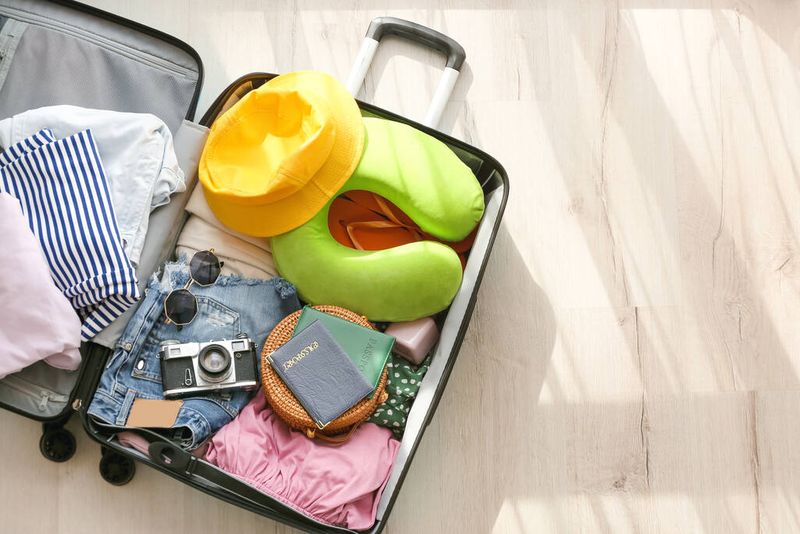
Australia's coastlines are some of the most lovely and biologically rich in the world, with visitors able to indulge in the rare luxury of being near nature without spoiling it. Strolling along a remote headland path, kayaking alongside dolphins, or even just sunbathing in sea air from a clifftop vantage point, every trip can revitalise a connection with the earth. But planning the perfect beach holiday is more than choosing a picturesque location—it's about being comfortable, responsible, and having a profound respect for the country just so.
Choosing Nature-First Destinations
There are no shortages of scenic spots to lay your head on Australia's east coast, but not all share the same green credentials. Choose operators that prioritise eco-certification, employ sustainable building materials, fit water-saving systems, and recycle whenever possible. Being situated near nature-related activities also reduces your drives and maximises your time in the landscape.
Responsible tourism doesn't have to cost comfort, though. Green designs and materials have been implemented in some luxury holiday homes Noosa so you can feel guilt-free after a day's surfing, hiking, or exploring national parks within easy reach. You're helping operators that think more about the long-term health of Australia's sensitive ecosystems by choosing to stay at such places.
Stay Prepared, Stay Safe
When going off the beaten track—whether a distant beach, clifftop path, or island nature reserve—be prepared. Wilder areas have few connections and little medical back-up, so an understanding of the terrain and having a vague plan is worth all the difference.
That is where an emergency management agency comes into play. These agencies provide public advice, seasonal warnings, and disaster updates relevant to specific regions. It is recommended that conditions are checked via their official websites or domestic visitor information centres before leaving, particularly during cyclone or bushfire seasons. Preparation not only entails the aspect of personal safety but also indicates a willingness to show respect to the land and its people.
Travel Light, Travel Smart
Efficient packing is one of the easiest ways of reducing your eco-print. Pack reusable bags, biodegradable soap, and quick-drying, lightweight clothing that does not need to be washed often. Where available, choose travel gear that is cruelty-free and made in Australia.
If you're not sure what to pack, we've got some ideas for toiletries and equipment for multi-day backcountry escapes in our travel essentials guide. With a little preparation in advance, you're less likely to be stuck digging through convenience stores or purchasing disposable items on the fly.

Weaving in Conscious Financial Planning
Nature-based travel need not be rough. For some Australians, beach holidays are a long-term lifestyle or retirement option. Whether buying land for conservation or investing in an eco-house, these choices tend to need clever advice.
A financial advisor Adelaide, for example, could assist clients in choosing investment opportunities that reflect individual values as well as environmental responsibility. Deciding where and how to invest your money can contribute to more conscious tourism and sustained land conservation initiatives.
Give Back While You Travel
The easiest thing to give back while you're travelling is to leave the location you visited in a cleaner state than you started. Pick up litter where you see it, remain on paths so you don't harm vegetation, and refrain from touching animals. Or you can get involved more actively by participating in local clean-ups or conservation volunteering.
WhaleFree conducts regular trail care days and beach clean-ups where travellers and locals are united side-by-side. It is a great method to find fellow likeminded travellers and experience an added sense of respect and appreciation for the regions you travel.
Know Before You Go
Before setting off, take a moment to review current environmental conditions and access updates for your destination. This can include fire bans, flood risks, or park closures. A good example is this website, which gives you the rundown on local ecological characteristics and conservation actions across Australia. Staying current guarantees you're traveling respectfully and with minimal impact.

Make the Journey Meaningful
Regardless of whether you're trekking the Queensland coastline, lazing in an eco-home in Noosa, or organising subsequent travel with sustainability in mind, the fact is that every decision matters. Eco-friendly travel ensures the improvement of local communities, the conservation of indigenous wildlife, and the forging of a personal bond with the planet. Whether you're away for a weekend or driving for months on end, it's not so much the length of time as the motivation.
At WhaleFree, we believe exploration and conservation go hand in hand. Our guides are designed to equip travellers with the knowledge and inspiration they need to move through the world with purpose.
Ready to explore more, give back, and reconnect with the wild? Browse our latest adventure resources and destination guides. Let your next trip be as meaningful as it is memorable.
Related Posts

What are the Best Travel-Size Toiletries Required For Travel?
Planning your next trip and wondering what toiletries to pack? This post dives into creating the perfect travel-sized toiletry kit, focusing on saving space, weight, and avoiding security issues. Learn about liquid restrictions, essential items like oral hygiene, skincare, and haircare, and discover handy extras and smart packing advice like using multi-purpose products and reusable bottles. Get ready to pack efficiently and travel light!

5 Quick Hairstyling Hacks for Hotel Rooms with Minimal Tools
Traveling light doesn't mean sacrificing style! Discover five easy hairstyling tricks perfect for hotel rooms, using minimal tools. From overnight waves to quick updos, look your best on the go.

Unique Outdoor Photo Gift Ideas for Adventurers
Turn adventure photos into unique gifts! Discover creative ideas beyond frames, like metal prints, personalized mugs, and even statement wallpaper.